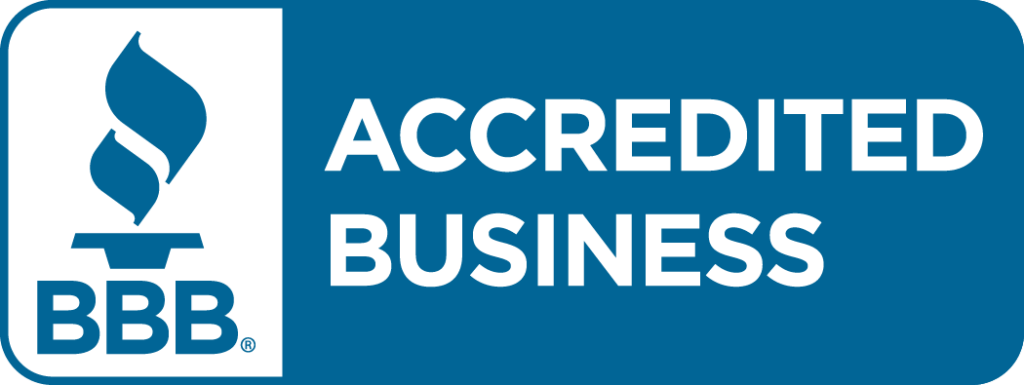Technology and data is a powerful way for businesses to boost their sales and improve their marketing efforts. From helping you better understand your customers to placing well-targeted ads that bring them right to your website, it’s important to understand exactly how sales technology works and the ways it can benefit your business.
What Exactly is Sales Technology?

The definition of sales technology encompasses all of the tools and software businesses use to improve their sales. The use of these tools vary from automating certain tasks to providing salespeople with crucial data to make their jobs easier. Basically, it provides a way for a sales team to use its time as efficiently as possible.
For example, let’s say a dealer that sells construction and farming equipment wanted to increase their sales. They might use sales technology to learn what prospects in their area have purchased a piece of equipment. The sales team can use that information to make more informed decisions about which leads they contact and when to content them. By knowing which prospects are least likely to make a purchase, they can focus on farms that might have more need for their products.
Types of Sales Technology
Here are some of the most common types of technology your competitors are using to boost their sales:
Customer Relationship Management (CRM)
Customer relationship management software is a tool that organizes and relays a ton of information on a business’s current and potential customers. Though every CRM tool differs in the type of information they organize and what they tell businesses, each one helps companies better understand their customers and what they want to purchase. For example, a business that sells aftermarket parts might use a CRM to gather information on people who recently viewed its products online. That might include taking notes on where they’re located, what webpages they visited, and what interactions they’ve had with the sales department.
Using this information, the aftermarket company can attract these potential customers using targeted ads. And of course, give their salespeople access to the information to arm them for sales calls. Having information on what the prospect likes always helps salespeople build a connection with them more quickly and increase the chances of making a sale.
Data Analysis
Data analysis tools help salespeople understand more about their audience so they can target them more effectively. For example, one of our clients recently used our digital services and product, EDA, to target individuals who owned specific brands or types of tractors. This allowed them to market and sell their tractor attachments to owners of compatible equipment. Narrowing their focus helped to increase their sales and ensure they weren’t wasting resources on dead-end leads.
Though not always the same, CRM software and data analysis tools often go hand-in-hand. The data analysis provides businesses with information to help them sell their products and the CRM helps organize that information so the company can use it more efficiently.
Geofencing Marketing
Geofencing marketing works exactly as it sounds. The technology creates a “fence” around a specific geographic area and uses location tracking to display relevant ads to prospects within that fence. Basically, once someone crosses the threshold, they can see ads for your business, a specific product, or a promotional offer. That’s a really helpful tool and strategy for selling in local areas.
For example, let’s say your company sells equipment or accessories for truckers. You can create a geofencing marketing campaign to target truckers who enter your chosen area. Then, you can display live advertisements to them that immediately direct them to your location. This allows you to increase your sales and match your prospects with products you know they can benefit from.
How Can You Use Technology to Improve Your Sales?
According to a recent study by Sales Insights Lab, at least 50% of prospects that businesses contact aren’t a good fit for what you’re trying to sell. That means companies are wasting half of their time on people who are never going to buy from them. Using sales technology, businesses can save that time by focusing on the prospects that matter.
For example, when using our data product, RigDig Business Intelligence, companies targeting the trucking industry can see information about their prospects they might not have known otherwise. In fact, our data provides businesses with full prospect profiles that show what type of equipment they own, brands they prefer, and inspection and safety violations. That helps you understand what your prospects like to buy and parts and service opportunities. when they’re likely to buy again.
Overall, this data allows companies to sell their products more easily and increase their sales numbers. But it’s not just the data that makes it possible. Technology is just a tool to help sales teams reach their full potential.
What Other Ways Can You Use Sales Data and Technology?
Besides improving your sales numbers, there are other ways that sales technology and data can help your business:
Attract New Customers
Though sales technology is helpful for closing sales on current leads and prospects, it’s also invaluable for attracting new customers to your business. For example, our data product, EDA, also provides users with the opportunity to uncover new leads who might have interest in their products. That includes the ability to set-up for when a prospects equipment warranty is expiring, as well as hotspots, so users can see what type of buyers are in their area.
This allows them to target prospects who might be ready to trade-in or buy new equipment. Because the buyer’s journey can take time, being able to engage with a prospect in advance can be crucial in finalizing the sale. It also allows them to approach cold calls with more information to help them have more highly productive conversations with prospects.
Improve Sales Performance
As mentioned, sales technology is also great for automating different sales functions. That might include organizing leads into helpful lists and alerting salespeople on a new lead or prospect who’s likely to make a purchase. All of these tools help companies improve their performance and create a more efficient workflow for their sales departments.
Organized, automated tools also help departments and businesses make decisions more quickly. That’s especially helpful knowing that 75% of sales go to the vendor that responds first. These days, buyers want things now, and they make decisions fast. It’s crucial for a company to have the necessary insights to make their decisions quickly in order to land the sale.
Make Better Decisions
With the data that sales technology provides, companies have the opportunity to make decisions they feel confident in. From knowing who is most likely to make a purchase to understanding what brands are most popular in different areas of the country, sales technology allows you to spend your time wisely and know you’re making the best decisions for your company.
Will Technology Ever Replace Sales Experience?
This is a question often asked in industries like trucking, agriculture, and construction. These industries are built on a foundation of tradition. That extends to its areas of business as well, including the buying and selling of heavy equipment necessary for the job. So, no, sales technology will never replace sales experience. Salespeople need that experience and that personal touch to build relationships with farmers, fleets, and contractors, and maintain their trusted advisor standing.
What sales technology does, is pair with your businesses and employee’s experiences to give you a greater insight into what your customers want and how you can approach the sales conversation. From there, experience takes over, solidifying the relationship and finalizing the sale. This is the approach that many companies use to improve their close rate, and it’s likely that your competitors are already incorporating it into their workflow. Waiting any longer might put your company in a position where you’ll have to work incredibly hard to catch up. So why wait at all?
Using helpful data or automation software, your business’s sales department can flourish. Sales technology is the perfect way to create a more efficient and effective workflow for your company. Take a look at this case study from one of our clients. It shows you exactly how sales technology can help your business flourish and get the data you need.
All-in-One Sales Technology
Believe it or not, there are pieces of sales technology that encompass all of the above benefits and more. Randall Reilly currently offers several pieces of asset intelligence technology that can help in data analysis, geofencing, prospect generation, and more. Whether you’re hoping to sell trucking, construction, or farm equipment, we have tools like EDA and RigDig Business Intelligence that can help you boost your sales and get ahead of the competition.




